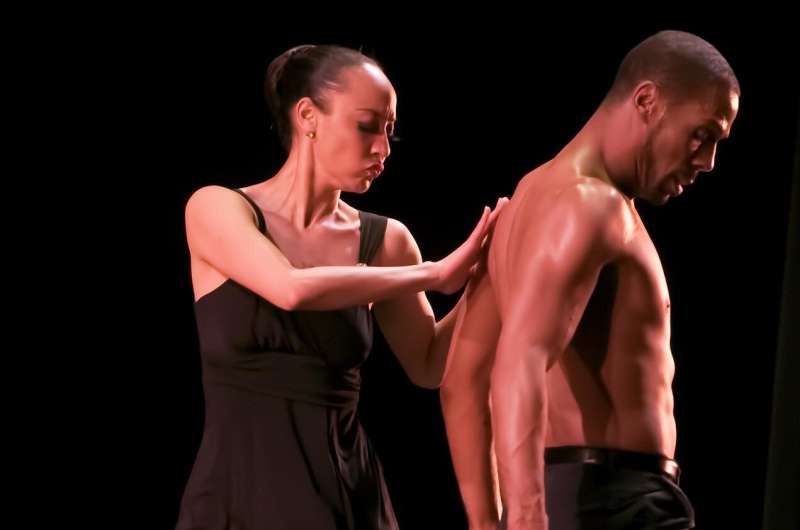This article has been reviewed according to Science X's editorial process and policies. Editors have highlighted the following attributes while ensuring the content's credibility:
fact-checked
peer-reviewed publication
trusted source
proofread
Study assesses 'the dancer personality'

"Tell me if you dance and I will tell you who you are!" A study led by researchers at the Max Planck Institute for Empirical Aesthetics (MPIEA) in Frankfurt am Main, Germany, has shown that both amateur and professional dancers are less neurotic than people who do not dance. They are also more agreeable, more open, and more extraverted.
The results of the study have recently been published in the journal Personality and Individual Differences.
In cooperation with Matthias Blattmann, CEO of Gutmann Dance School in Freiburg im Breisgau and Tanzloft GmbH, and Luisa Sancho-Escanero, dance director at the Pfalztheater Kaiserslautern, the MPIEA's researchers analyzed data from 5,435 people from Sweden and 574 people from Germany, with regards to their Big Five personality traits: openness, conscientiousness, extraversion, agreeableness, and neuroticism.
"What is unique about this work is that we have brought together very large samples from two different countries. Such data are generally scarce, and previous studies have often been based on rather small samples," explains senior author Fredrik Ullén, Director at the MPIEA.
In Sweden, the research team was able to rely on an existing database that included data about peoples' creative engagement and dance achievements. To collect dancer data in Germany, the researchers developed an online survey that was widely shared by dance institutions.
Previous research has found that musicians are more agreeable and more open to others than non-musicians. In the current study, this was also confirmed for dancers. But the researchers also found an interesting difference between the two groups: In comparison to musicians, dancers are not more neurotic, but—on the contrary—less neurotic than people who do not dance.
"In general, both dancers and singers show a high degree of extraversion in their personality—which may be due to the fact that their means of expression when dancing and singing is their body—and this is a very socially exposed situation, more than if you express through an instrument, for example. However, more in-depth investigations are needed to explore this further," says lead author Julia F. Christensen of the MPIEA.
There was also some evidence of personality differences between dancers of different styles. Swing dancers, for example, seemed to be even less neurotic than Latin and Standard dancers. However, this needs to be confirmed with larger samples of dancers. In the future, the researchers hope to extend their research into dancers' personalities to many other cultures and dance styles.
More information: Julia F. Christensen et al, The dancer personality: Comparing dancers and non-dancers in Germany and Sweden, Personality and Individual Differences (2024). DOI: 10.1016/j.paid.2024.112603
Journal information: Personality and Individual Differences
Provided by Max Planck Society





















